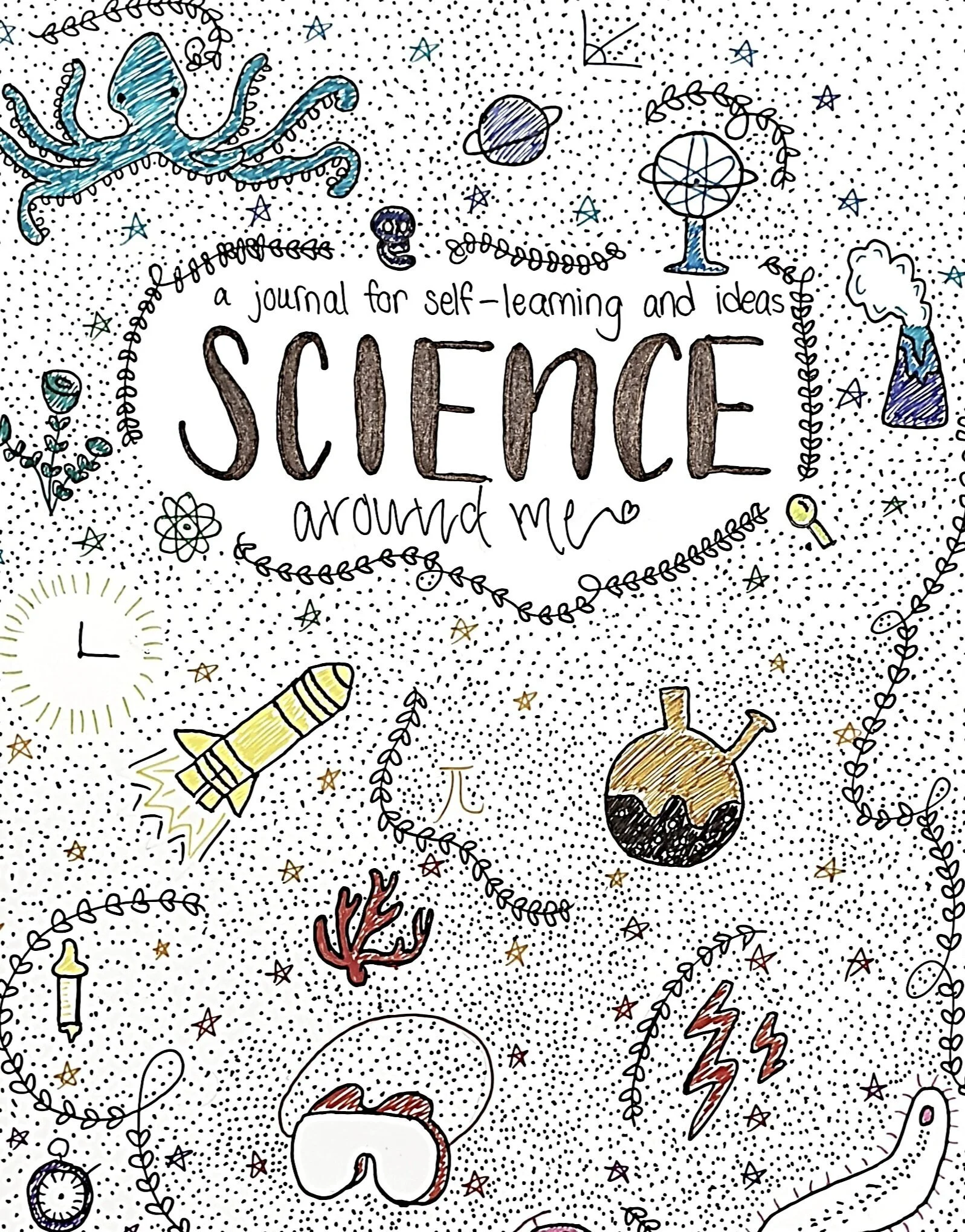Journaling:
for happier children
a journal enables every child to be heard;
a journal is a tool to listen with all our senses.
A series of dried plants collected as part of a Well-Being Routine
Journaling to Build Competence
The act of journaling has the ability to teach children skills beyond the study of its contents.
Key principles from ‘Making Thinking Visible’ and positive psychology are embedded through carefully crafted Thinking Routines and Well-Being Routines — empowering children to fly on their own.
Cover of a science journal by a Primary 6 / Grade 6 student - Gerraine
What Do Our Journals Teach?
Journals are used as powerful tools to instruct children in six key areas:
listening • critical thinking • values • well-being • making connections • big picture thinking
Why Does Journaling Work?
Journaling has proven to be an effective medium for the learning and development of children as it fulfills their need for relatedness, competence, and autonomy.
Relatedness
A one-to-one link to every child
Each journal is precious
Mark entries quickly
Comment consistently
Competence
Teach skills that enable
Embed chosen strategies
Link efforts to progress
Make emotions visible
Autonomy
Change the role of the learner
Ask for their questions
Listen with your senses
Let them lead the way
What’s in a child’s mind?
A Primary 5 / Grade 5 - Sydney’s summary of her learning from 2 years of journaling
A Word on Journaling
Excerpt from Speech by Mr Heng Swee Keat, Minister for Education
Guest-of-Honour at Singapore International Science Teachers’ Conference 2012
“… in Bukit Timah Primary School, Mrs Chien Mee Len, the HOD of science, and her teachers have adopted Inquiry as a school-wide pedagogy.
Lessons are planned to encourage pupils to communicate their understanding of Science. Pupils have opportunities to pose their own questions, carry out investigations and collect evidence regularly linking Science to life. Pupils also reflect on their learning in their “Science around Me” journal, also known as SAM.
Every child takes an active part in their own science learning journey.”

Snippets about Journaling
“I was very thankful that Mrs Chien changed my personality and made me a hard working girl”
“I came to SJT because I noticed that Journaling is not a very common thing in our lifes. Journaling makes my brain more active in thinking and creativity”
“I learnt that to make a good entry you must be self-directed. You can write things that you actually want to know”
About the Instructor
Mee Len Chien is an educator with 15+ years of experience in the field. She started her career as a pioneer teacher at Pathlight School, was Head of the Science Department at Bukit Timah Primary where she most recently spent 5 years as a Vice Principal before taking on the appointment as Lead Teacher (Character & Citizenship Education) in 2020. Mee Len was awarded the Commendation Medal during the 2016 National Day Awards.
Mee Len created the SAM (Science Around Me) Journal in 2009 as a tool to help all students express themselves better, develop thinking skills, and their social & emotional competencies. The journal was developed using concepts from 'Making Thinking Visible' (Harvard Graduate School of Education) and positive psychology. In 2013, this initiative was accepted under the Ministry of Education's Applied Learning Programme Grant.
Resources & Extra Reading
Making Thinking Visible
Harvard University, Harvard Graduate School of Education, Project Zero. More info here.
Greater Good Science Centre
University of Berkeley. More info here.
Positive Psychology
Foundations University of Pennsylvania, Dr. Martin Seligman. More info here.
Science of Happiness
University of Berkeley, Dr. Emiliana Simon-Thomas, and Dr. Dacher Keltner. More info here.
Positive Emotions
University of California, Dr. Barbara Fredrickson. More info here.
Self-Determination Theory
University of Rochester, Center for Self-Determination Theory, Dr. Richard Ryan. More info here.



